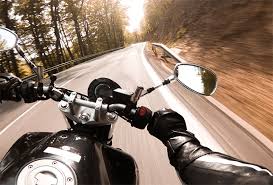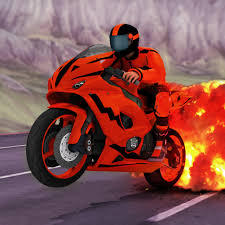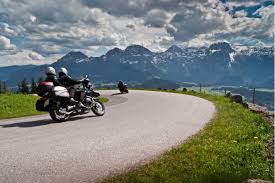The Legendary Erzberg Rodeo: Conquering the Iron Giant

The Thrilling Erzberg Rodeo: A Legendary Off-Road Motorcycling Event
Every year, the rugged terrain of the Erzberg mountain in Austria plays host to one of the most challenging and exhilarating off-road motorcycling events in the world – the Erzberg Rodeo. This legendary event attracts top riders from around the globe who are willing to test their skills and endurance in a gruelling race like no other.
The Erzberg Rodeo is known for its demanding course, which features steep climbs, treacherous descents, rocky obstacles, and unforgiving terrain. Riders must navigate through a series of checkpoints and challenges, pushing themselves and their bikes to the limit in order to reach the finish line.
What sets the Erzberg Rodeo apart from other off-road races is its unique format. The main event, known as the “Red Bull Hare Scramble,” sees hundreds of riders competing in a mass start race up the Iron Giant – a towering vertical ascent that tests even the most skilled riders.
Only a select few riders manage to conquer the Iron Giant and complete the gruelling course within the time limit. Those who do are hailed as heroes, their names etched into off-road motorcycling history alongside other legendary champions.
But it’s not just about competition at the Erzberg Rodeo; it’s also a celebration of camaraderie, passion, and sheer determination. Spectators line the course, cheering on riders as they tackle seemingly impossible obstacles and push themselves beyond their limits.
For both riders and spectators alike, the Erzberg Rodeo is an unforgettable experience that showcases the true spirit of off-road motorcycling – resilience, courage, and an unyielding passion for adventure.
Essential Tips for a Safe and Enjoyable Erzberg Rodeo Experience
- Research the event schedule and plan your visit in advance.
- Wear appropriate protective gear such as helmets, goggles, and body armour.
- Bring plenty of water and snacks to stay hydrated and energized throughout the day.
- Arrive early to secure a good viewing spot for the races.
- Follow all safety guidelines and instructions provided by event staff.
- Be prepared for unpredictable weather conditions by dressing in layers.
- Respect the environment by disposing of waste properly and staying on designated paths.
- Capture memories with photos or videos, but remember to enjoy the experience in the moment too.
- Support local vendors and businesses at the event to contribute to the community.
Research the event schedule and plan your visit in advance.
When preparing to attend the prestigious Erzberg Rodeo, it is crucial to research the event schedule and meticulously plan your visit in advance. By familiarising yourself with the timetable of races, competitions, and other activities, you can ensure that you don’t miss out on any key events during this thrilling off-road motorcycling extravaganza. Planning ahead will also allow you to make the most of your experience at the Erzberg Rodeo, ensuring that you are well-prepared and ready to immerse yourself in the excitement and challenges that await at this legendary event.
Wear appropriate protective gear such as helmets, goggles, and body armour.
For a safe and enjoyable experience at the Erzberg Rodeo, it is crucial to wear appropriate protective gear. This includes helmets to protect your head, goggles to shield your eyes from debris and dust, and body armour to safeguard against potential impacts and injuries. Ensuring you are properly equipped with the right protective gear not only enhances your safety but also allows you to fully focus on conquering the challenging terrain of the event without unnecessary risks. Remember, safety should always be a priority when taking part in such demanding off-road motorcycling events like the Erzberg Rodeo.
Bring plenty of water and snacks to stay hydrated and energized throughout the day.
When attending the Erzberg Rodeo, it is essential to come prepared with an ample supply of water and snacks to ensure you stay hydrated and energized throughout the day. The demanding nature of the event, coupled with the challenging terrain and adrenaline-fueled atmosphere, can quickly deplete your energy levels. By staying hydrated and nourished with snacks, you can maintain your strength and focus, allowing you to fully enjoy the thrilling experience of the Erzberg Rodeo without any interruptions.
Arrive early to secure a good viewing spot for the races.
To make the most of your Erzberg Rodeo experience, it is advisable to arrive early to secure a prime viewing spot for the thrilling races. By getting there ahead of time, you can ensure a clear vantage point to witness the heart-pounding action as top riders tackle the challenging course. Securing a good viewing spot will not only enhance your enjoyment of the event but also allow you to fully immerse yourself in the excitement and atmosphere of this legendary off-road motorcycling spectacle.
Follow all safety guidelines and instructions provided by event staff.
To ensure a safe and enjoyable experience at the Erzberg Rodeo, it is crucial to follow all safety guidelines and instructions provided by event staff. These guidelines are put in place to protect both riders and spectators, as the challenging terrain and intense nature of the event require strict adherence to safety protocols. By following the instructions given by event staff, participants can minimise risks and maximise their enjoyment of this legendary off-road motorcycling event.
Be prepared for unpredictable weather conditions by dressing in layers.
When gearing up for the challenging terrain of the Erzberg Rodeo, it’s essential to be ready for unpredictable weather conditions. Dressing in layers allows riders to adapt to changing temperatures and weather patterns throughout the race. From scorching sun to sudden downpours or chilly winds, having the flexibility to add or remove layers ensures that riders can stay comfortable and focused on conquering the rugged course without being hindered by the elements.
Respect the environment by disposing of waste properly and staying on designated paths.
Respecting the environment is paramount at the Erzberg Rodeo. It is crucial to dispose of waste properly and stay on designated paths to minimise our impact on the pristine surroundings. By adhering to these guidelines, we can ensure that this legendary off-road motorcycling event continues to thrive in harmony with nature, preserving the beauty of the landscape for future generations to enjoy.
Capture memories with photos or videos, but remember to enjoy the experience in the moment too.
When attending the thrilling Erzberg Rodeo, it’s important to capture memories with photos or videos to cherish and share with others. However, amidst the excitement and adrenaline of the event, remember to also take the time to immerse yourself in the experience and truly enjoy every moment. Balancing between documenting the action and being present in the moment allows you to create lasting memories while fully appreciating the thrill and camaraderie that make the Erzberg Rodeo a truly unforgettable off-road motorcycling event.
Support local vendors and businesses at the event to contribute to the community.
Supporting local vendors and businesses at the Erzberg Rodeo is not just about purchasing goods and services; it’s a way to contribute to the community and show appreciation for the host region. By choosing to buy from local vendors, attendees can help sustain the local economy, create opportunities for small businesses, and foster a sense of community spirit. Whether it’s enjoying delicious food from nearby eateries, purchasing handmade crafts from local artisans, or supporting businesses that call the area home, every contribution makes a difference in showcasing the unique character and vibrancy of the Erzberg Rodeo event.









